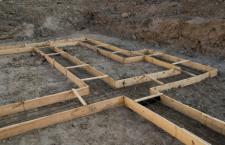 Cassie graduated from Bart's and The London School of Medicine & Dentistry in 2012 and completed her first year of dental foundation training in London. She is currently in her second year of dental foundation training which involves working within the community dental services as well as dental hospitals in London and Essex.
Cassie graduated from Bart's and The London School of Medicine & Dentistry in 2012 and completed her first year of dental foundation training in London. She is currently in her second year of dental foundation training which involves working within the community dental services as well as dental hospitals in London and Essex.
Cassie says "Planning ones next move after dental foundation training can be overwhelming, so I wanted to write this article to provide newly qualified dentists with an insight into the option of undertaking a second year of foundation dental training"
Tough decisions
Planning your next move after dental foundation training can be overwhelming, and a second year of training can be just the thing to help you gain experience and start laying the foundations for your future career in dentistry. Here is a brief look at the pros and cons of considering a second year of dental foundation training, with some examples from within the community dental services.
Laying the Right Foundations
Do you feel a definite passion for one dental discipline over another, or are you still unsure? Do you feel your skills need fine-tuning and you could do with more experience? This was the position I found myself in, and it is why I applied for a second year of dental foundation training (DF2).
It may seem daunting going back into training after having just graduated from dental school, but no matter what your future career plans, there are several very good reasons to apply for DF2. Here are a few things to consider:
The good:
1. It gives you a chance to practice your interview skills.
2. It is a great first step towards specialist dental training (if you already have your heart set).
3. It provides an opportunity for you to build on your clinical skills and experience in a supportive environment.
4. Further training, research and education through a second year of foundation training can lead to presentations and publications which will improve your CV and your portfolio.
5. You will meet new people and make new friends - networking is invaluable early on in your career!
6. It exposes you to new challenges which will build your confidence.
7. You will have the opportunity to experience all different aspects of dentistry, allowing yourself time to find your niche or passion. This may be specialist training or returning to practice with additional improved skills.
The bad:
1. It is very competitive.
2. You may have to travel or move location and managing your diary may be tough.
3. It isn't as well paid as being an associate (although this is not necessarily true as good jobs are hard to find these days!).
4. You may have to do on calls/long shifts.
5. Some posts may not involve a lot of clinical dental work so you might feel you de-skill. A solution in this instance would be a weekend job to keep clinical dental skills fresh.
Foundation training in the Diverse World of Community Dental Services
During my first year of foundation training I felt a great pride in helping patients who were extremely anxious and I became interested in learning more about sedation and community dentistry. The best way to follow up an interest is to get real life experience, which is why I applied for a DF2 post with the community dental services (CDS) in mind. I was lucky, as after several gruelling interviews I was offered a DF2 post. My post combines working in the CDS (including weekly adult and child General Anaesthetic sessions) with a rotation through several dental departments at a dental hospital (dental emergency clinic, oral surgery, oral medicine and restorative clinic).
Although it is still early on in my post, I have noticed a huge improvement in my communication and soft skills, and have gained invaluable experience in managing a perse range of complex patients (medically compromised, learning difficulties, mental and/or physical disabilities etc).
Yes it is challenging and tiring, but at the same time, really rewarding! You go home feeling like you have accomplished something meaningful and made an impact. DF2 in community dentistry may not be everyone's first choice, but it is a lot more hands on compared to some of my colleagues in restorative and maxfax posts! In contrast, however, I get limited experience of complex surgeries/ward rounds etc.
From an academic standpoint, I have weekly evening teaching sessions, and am encouraged to complete a case presentation, audit, and quality improvement project as well as getting involved in research. DF2 allows you to get more involved in a huge number of things which might not have been so readily available at undergraduate level.
If you are contemplating your next career move after foundation training I would strongly encourage you to think about DF2. DF2 recruitment will soon be centralised like DF1, but do still ensure you research the posts well, as there are lots to choose from general duties, community dentistry, dental public health, maxfax, restorative etc. Whichever post you apply for, you can tailor the year to match the direction of your career, or simply take the opportunity to get a unique and invaluable experience in a host of new activities. Who knows, you may even discover a passion you didn't know you had!
Cassandra Lewis
[email protected]
Dental Protection is the leading indemnity provider.
Find out more